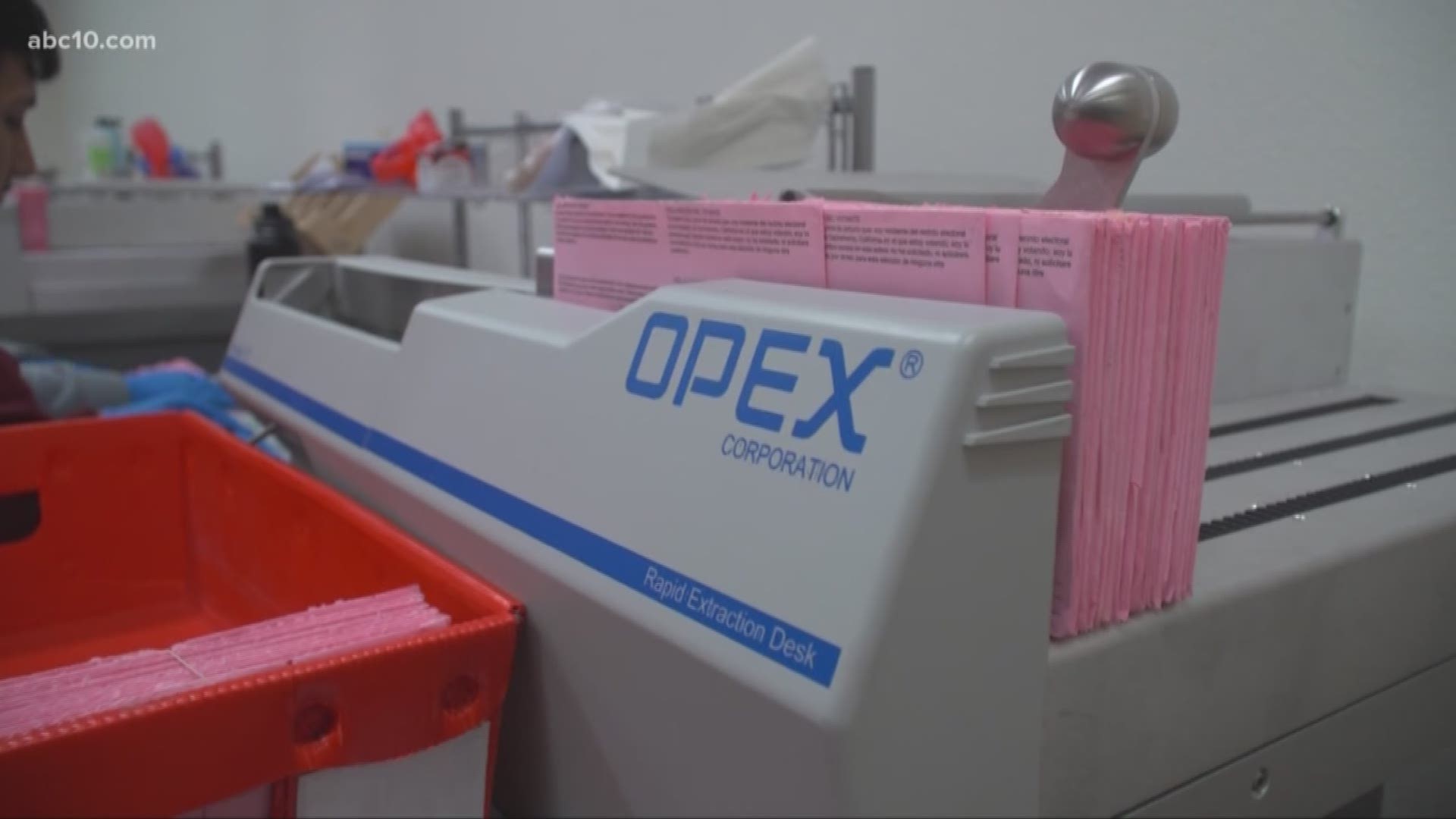SACRAMENTO, Calif. — While we’re still waiting for the final vote count from California’s fiercely contested presidential primary on Tuesday, here’s another number: $169 million.
That’s about how much presidential candidates from all parties spent on their respective bids for the White House just in California from the beginning of 2019 through January 2020. (February spending, sure to be significant in the lead-up to California’s March 3 election, won’t be published until later this month.)
This chart shows how much each candidate spent cumulatively from one month to the next.
The two largest bars belong to ex-New York City mayor Michael Bloomberg and hedge fund success turned activist Tom Steyer. What the two men have in common: Both are billionaires and both are no longer in the race.
Neither are former South Bend, Ind. mayor Pete Buttigieg and Massachusetts Sen. Elizabeth Warren, who spent the third and fourth-most.
Meanwhile, Vermont Sen. Bernie Sanders, who is currently holding a strong first place finish in the state, spent only the sixth most of any candidate in the state. Biden, the current second place finisher, spent only slightly more.
The data is based on filings with the Federal Elections Commission. Not all the money spent in California went toward in-state doorknocking or campaign rallying. According to the campaign filings, more than $86 million (or 51% of all the dollars spent in the state) went to Google, Facebook and Twitter — California-based companies with a reach far outside the state.
Although most of the candidates were financially constrained by federal caps on how much can be donated directly to their campaigns, those caps do not apply to candidates spending their own money. That allowed Steyer and Bloomberg, to shower the state with an unprecedented amount of cash.
Conventional wisdom holds that the sheer size of California makes the hand-shaking, baby-kissing retail politics that is so prized in earlier primary and caucus states like Iowa and New Hampshire ineffective. Instead, vast sums of cash and the television ads you can buy with it are generally considered the necessary ingredients of success here.
The New York Times reported that Californians saw roughly $120 million worth of presidential campaign ads, and the Bloomberg campaign accounted for most of that spending.
But despite outspending the rest of the pack, Steyer made his exit from the race after coming in third in the South Carolina primary and Bloomberg, who currently sits at 14% based on preliminary statewide results, dropped out the day after Super Tuesday, when California and a dozen other states held their elections.
Don’t feel too bad for the billionaires. Tom Steyer has an estimated net worth of $1.6 billion. Bloomberg reportedly has somewhere in the ballpark of $60 billion to his name. Their respective 2020 political splurges in California work out to 1.7% of Steyer’s wealth and 0.1% of Bloomberg’s.
For someone making the California median income of roughly $35,000, that’s the equivalent of just under $600 for Steyer (the cost of, say, a roundtrip flight to New York and back) and $32 for Bloomberg (perhaps the price of a New York rib eye at a medium-fancy restaurant).
For all the concern from Bloomberg-critics that the billionaire former mayor of New York was trying to “buy” the election, the estimated half a billion dollars that he spent nationwide isn’t likely to win him more than a small share of the party’s delegates.
As Michael Malbin, executive director of the Campaign Finance Institute, told the Washington Post, money may not be sufficient, but it is necessary to compete on a national stage.
“Bottom line, (Bloomberg) did much better than many governors in this race. He lasted longer. He got votes on Super Tuesday. He qualified for some delegates,” he said.
The limited power of cash is a lesson that many politicians have learned in California. Most recently, Meg Whitman and John Cox both ran for governors in the state and — millions of dollars later — came up short.
“The beaches of Californians are littered with the bleached bones of millionaire and billionaire politicians,” said Bill Whalen, a fellow at Stanford’s Hoover Institution, speaking to CalMatters earlier this week. “Money can’t buy you love.”
CalMatters.org is a nonprofit, nonpartisan media venture explaining California policies and politics.
FOR NEWS IN YOUR COMMUNITY, DOWNLOAD THE ABC10 APP:
►Stay In the Know! Sign up now for ABC10's Daily Blend Newsletter



